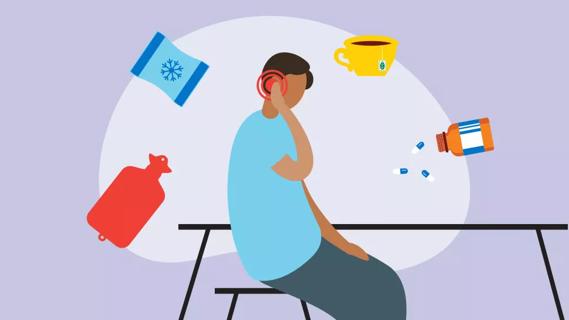Advertisement
FDA approves drug to help treat symptoms of SPMS

For the first time in more than a decade, the FDA has approved a medication for secondary progressive multiple sclerosis – a hard-to-treat form of the disease that impacts people who have lived with MS for a long period of time.
Advertisement
Cleveland Clinic is a non-profit academic medical center. Advertising on our site helps support our mission. We do not endorse non-Cleveland Clinic products or services. Policy
Neurologist Robert Fox, MD, says trials show the drug, siponimod, which is taken in pill form, is effective in slowing the progression of this form of MS.
“The patients treated with siponimod had a slower progression of disability than the patients treated with the placebo,” he says. “What the trial also found is that the patients who had active inflammation at the beginning of the trial, responded even better to siponimod compared with the placebo.”
Dr. Fox says about 85 percent of MS cases begin with the relapsing-remitting stage, which involves episodes of numbness, weakness or blurry vision.
When doctors can intervene quickly and get the disease under control, most patients do very well long term.
In the early stages of MS, neurological symptoms come and go. About half of those with MS maintain this relapsing-remitting symptom pattern over time. The other half with MS go on to develop progressive disease that gradually worsens over time and causes severe disability.
Secondary progressive MS impacts a person’s ability to walk, use their arms and their cognitive function.
Dr. Fox says it’s key to keep in mind that this new drug is only approved for secondary progressive MS patients who continue to have episodes of numbness, weakness or blurry vision.
Advertisement
And the medicine is only able to slow the progression of MS, not eliminate or cure it.
“An important aspect of this drug is that it’s only partially effective,” he says. “It only slowed the progression of disability by about 21 percent. So it’s not a cure for secondary progressive MS, but we do think that it will be a helpful addition for many patients.”
Certain side effects, such as a slowing heart rate was shown during the trials, Dr. Fox notes Therefore, patients with a history of heart rhythm difficulties or heart attack need to talk to their doctor about the safety risks of this medication.
There is also an increased risk to the liver, so liver monitoring is important over the course of taking this therapy.
One thing that experts don’t yet know, he adds, is how well the drug can work for people who have had secondary progressive MS for a long period of time.
Editor’s Note: Dr. Fox is a paid consultant for the company that produces this drug.
Advertisement
Learn more about our editorial process.
Advertisement

Imagination, completing tasks and social interactions are all key benefits for your brain

You can alternate these OTCs to help with pain management and fever reduction

Find a psychiatrist or psychologist in your area who works with autistic adults — or reach out to a pediatric specialist if you can’t find one

If you’re frequently dealing with short-term memory loss, confusion or issues around spatial awareness, you may need to see a neurologist

Alzheimer’s is just one common cause of cognitive decline categorized as ‘dementia’

Changes to your vision may have an impact on the way your brain processes information

Your risk for familial Alzheimer’s disease and other forms of hereditary dementia increases if an immediate family member has it

Securing your home, preparing your neighbors and teaching your loved one to swim are key to ensuring your child’s safety

Not all ear infections need antibiotics — cold and warm compresses and changing up your sleep position can help

A glass of lemon water in the morning can help with digestion and boost vitamin C levels, and may even help get you into a better routine